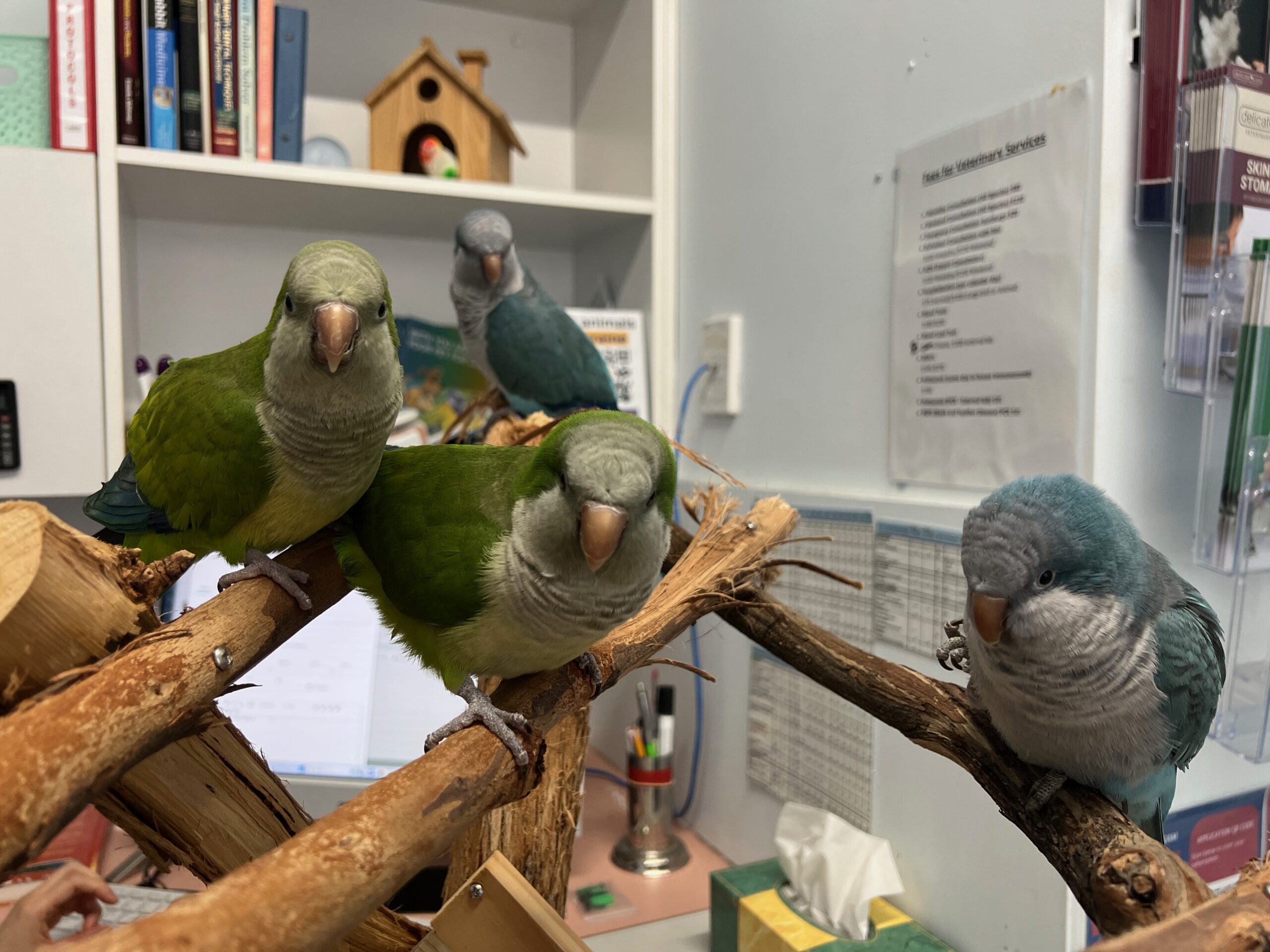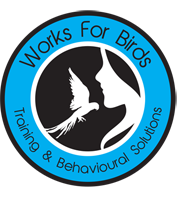Stable or Cured?
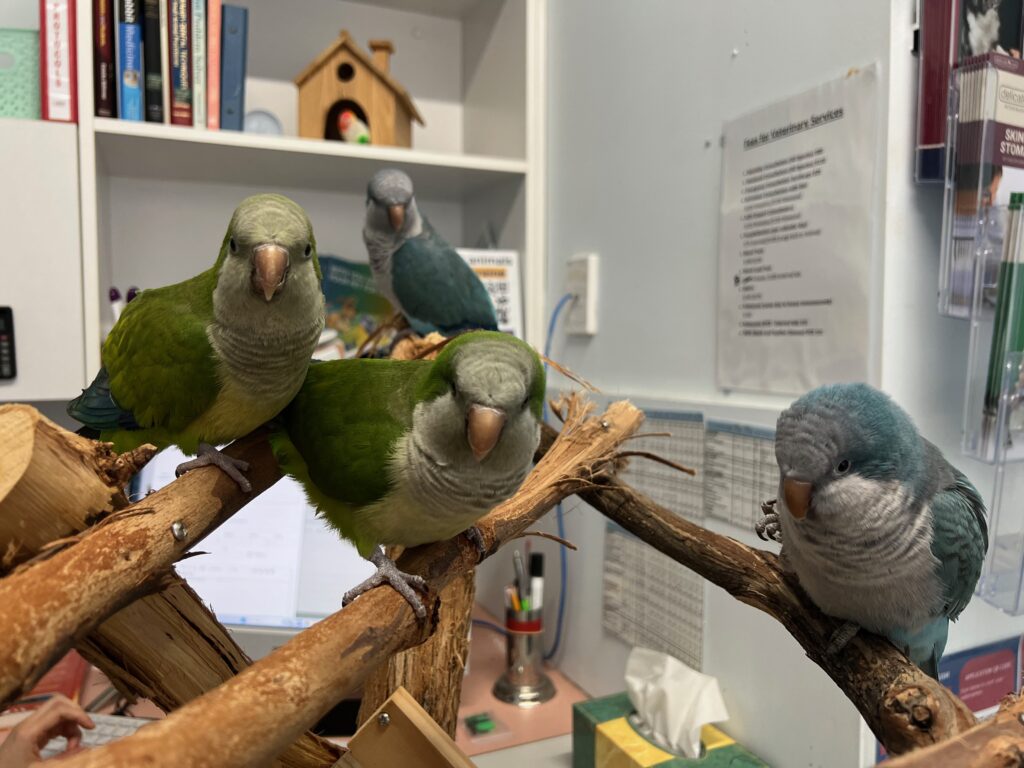
Giving After Hours Emergency Advice For Birds
There is one mistake that people with critically ill birds commonly make. They can't tell the difference between stabilised and fixed. It happens, in part because they desperately want their bird to be ok. They will grasp at any sign that their bird is going to be ok and latch on to it. The results are more often than not fatal.
I have lost count of how many people have called me out of hours with a bird emergency. It's a definite downside of my job (both as a behaviourist and a practice manager of an avian clinic). There is almost no help for birds after hours where I live. Medical emergencies have a new level of desperation when there is nowhere to run to.
The situations that I get called about are almost always life threatening for the bird. Scenarios could be anything from collapsed, bleeding out, lost and found suffering from exposure and starvation, having seizures, ingested poison, predator attack, badly burned, smoke inhalation, eggbound, lethargic, flown into something, broken bones, broken beak, ate an earring, strangled by a toy, legband cutting off circulation, vomiting, breathing issues, self mutilating... the list is fairly endless. I have been called for all those reasons and more, at all hours.
Thanks to my job, I deal with emergencies on a daily basis. If I didn't have the ability to handle them in some way by now, I'd have to be exceptionally stupid. I certainly have the basics down and I can usually stabilise a bird.
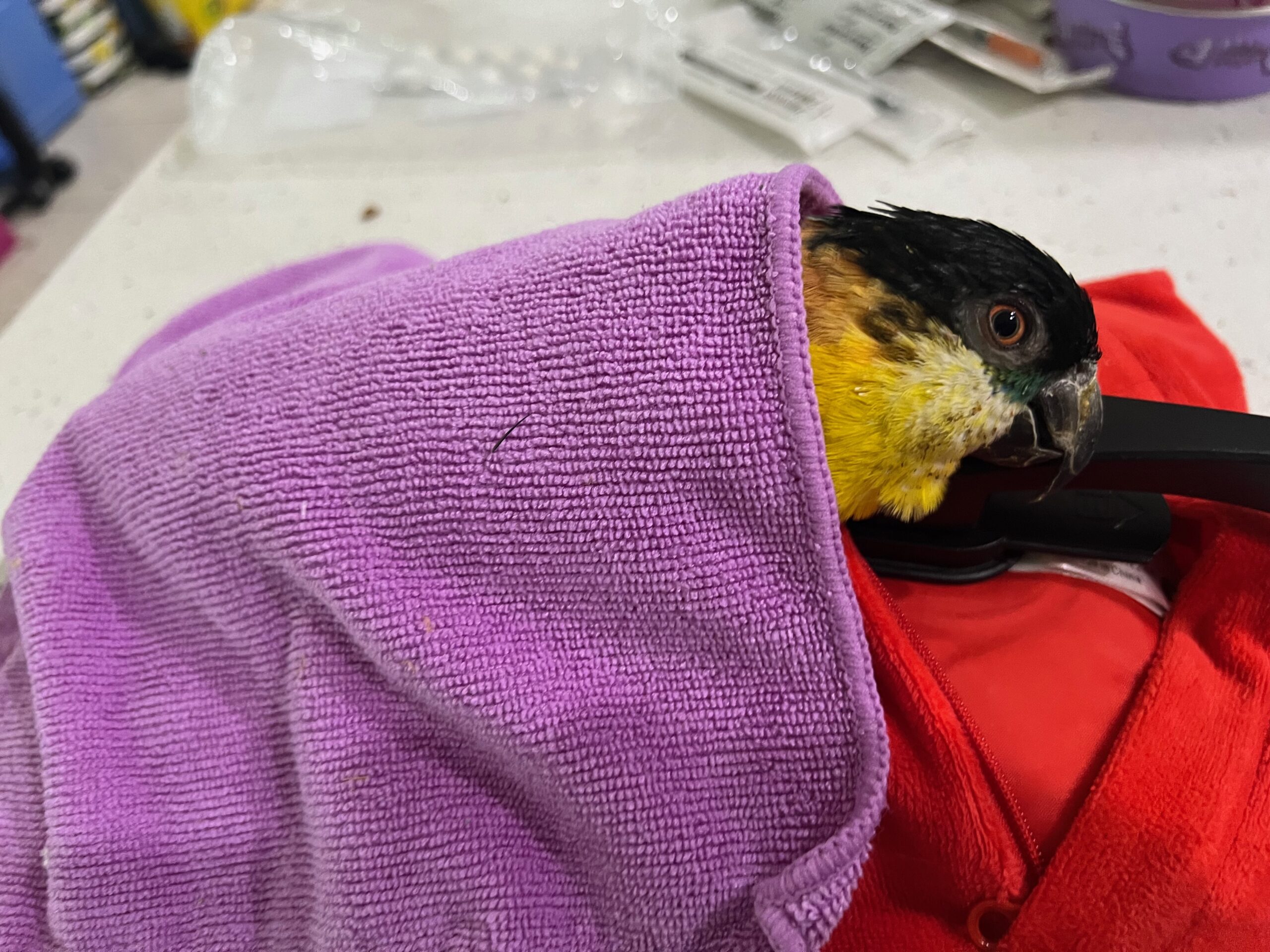
The ability to function in an emergency has regularly saved the lives of my own personal birds. One day, I found my caique, Dusty, apparently dead at the bottom of his cage. He had been fine when I had seen him two hours earlier. When I found him, he was stone cold, not breathing, rock hard to touch. He looked like he had been dead for a while. I picked him up because I needed to do something with the body, not with any thought whatsoever that he was still saveable.
Fortunately, thanks to a habit formed in my day job, I went into auto mode and unconsciously, automatically, started chest compressions with absolutely no expectation of revival. I was doing the compressions, while walking over to pick up a stethoscope because there's a rule in an avian clinic: Even if it looks obviously dead, nothing is considered dead until you've confirmed it. The voice in my head was contemplating autopsy and cremation. He was dead. There was no flexibility to his joints. His body was rigid. It was an absolute fluke that I felt the tiniest single heartbeat in response to my chest compressions and realised it wasn't over. I did a double take and was suddenly grabbing equipment to warm him up, grabbing fluids, while frantically resuscitating him. There was no pulse with the stethoscope but I had felt something. After a few minutes of compressions, I got a couple of irregular heartbeats on the stethoscope. I kept going. I found myself supporting an irregular pulse still doing chest compressions. I was breathing for him. 10 minutes later, he opened his eyes and started breathing on his own.
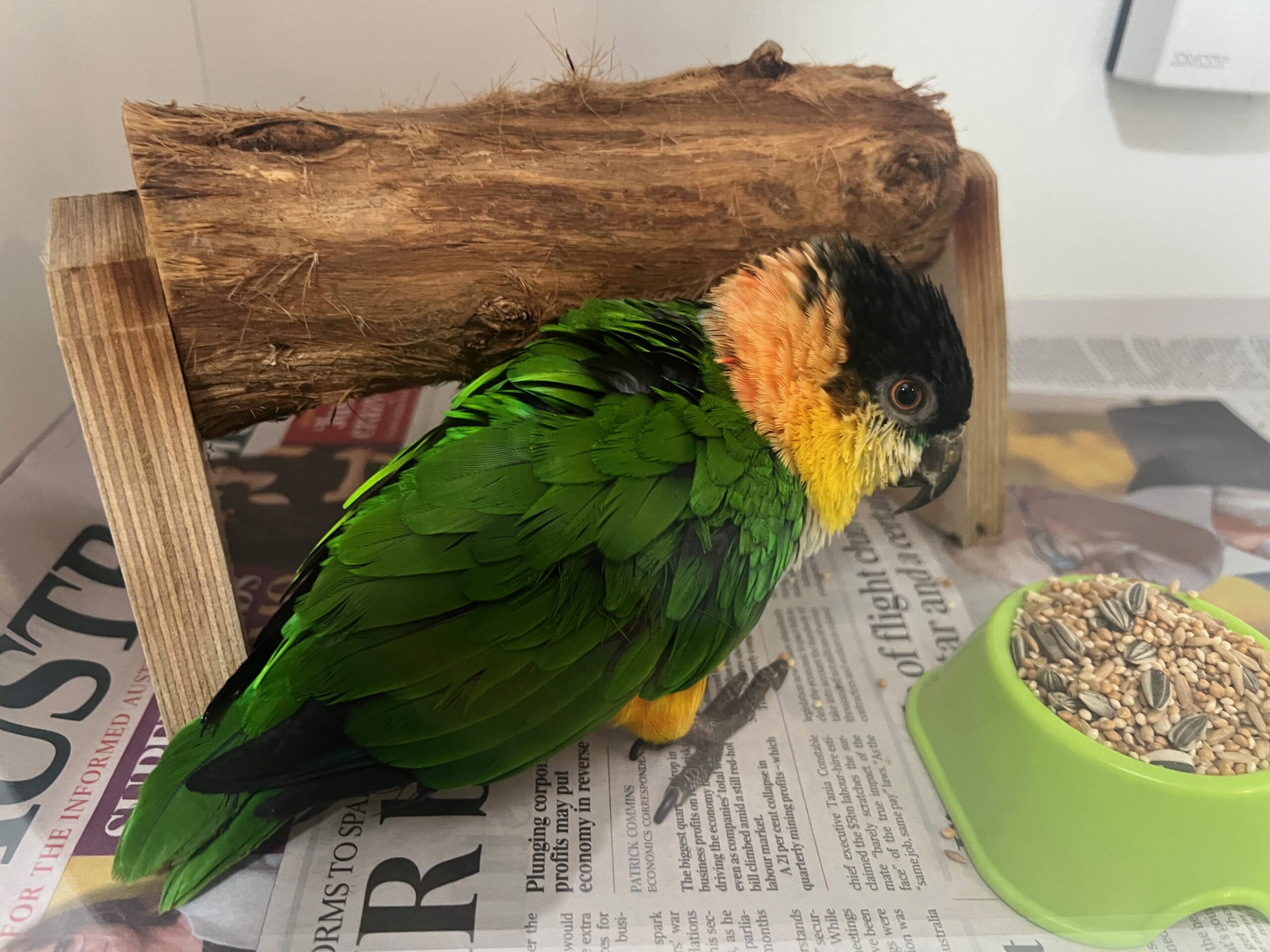
When I got a stable pulse, I set off for the clinic. He stopped breathing another 4 times while I was driving to the clinic. I was doing chest compressions while driving. I knew what I was doing though and by the time I got to the clinic he was collapsed but conscious. 2 hours later he was up and eating. I got my miracle and I didn't waste it. I got him stable enough to get a diagnosis. I now know he's diabetic and he's being treated for that. He's alive, because of my training and experience. That kind of ability - many owners would kill for it in an emergency out of hours. There's a very real downfall to having that ability though.
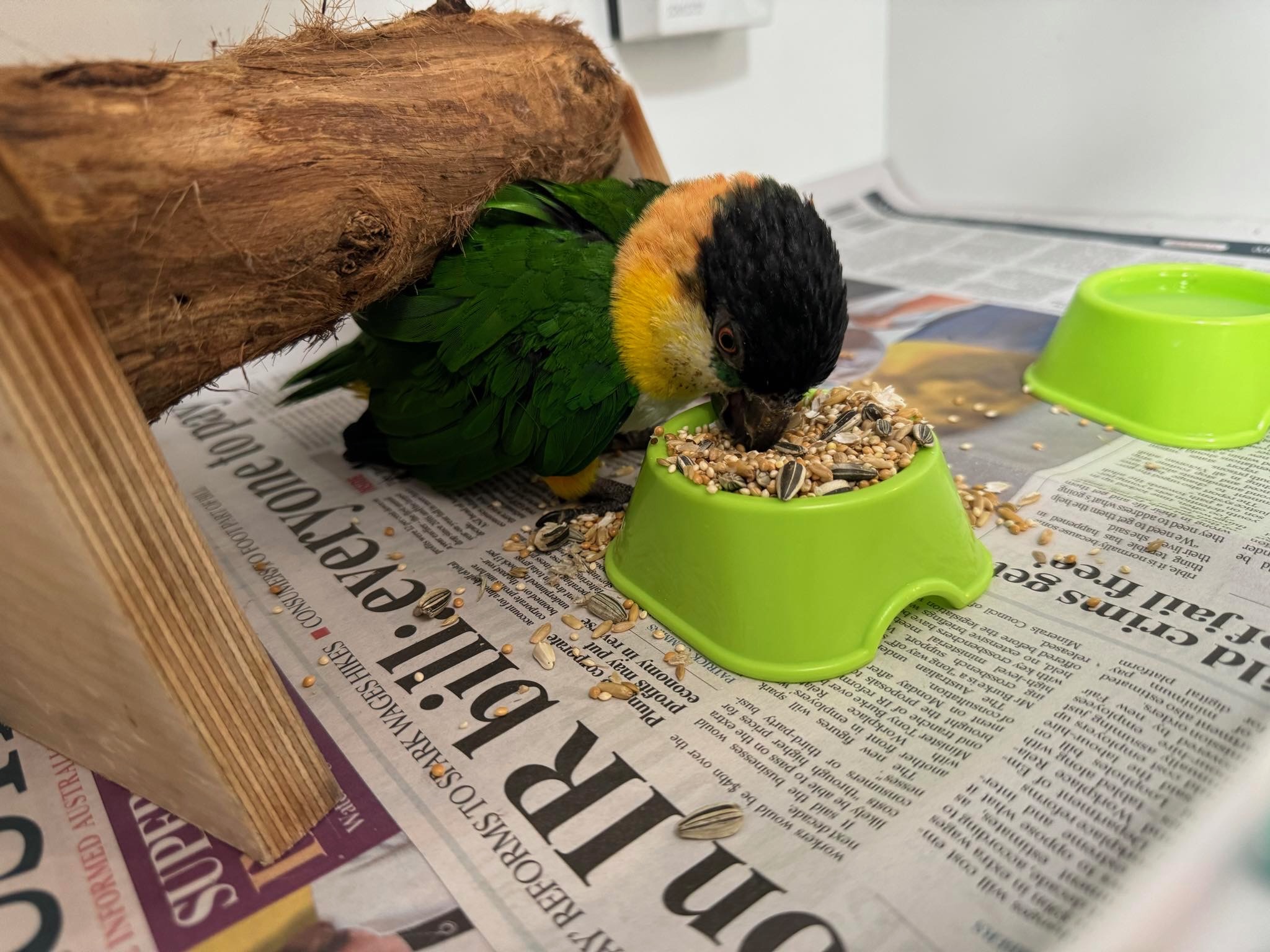
The downfall of being able to stabilise a bird that is close to death, is that many owners often interpret the apparent improvement in their bird's condition as a sign that their bird is recovering. This can result in them not actually attending the vet because they feel they now have time. They can wait for treatment at a time that doesn't mess up their daily schedule or finances. I mean it's not an emergency any more, right?
I am ALWAYS going to advise after an emergency that even if the bird appears ok, when the vet clinics re-open: GO TO THE VET.
I'll be honest here. I'm writing this blogpost because yet another bird has died and I'm a little messed up about it. It's not the first, I doubt it will be the last but I would like it to be the last.
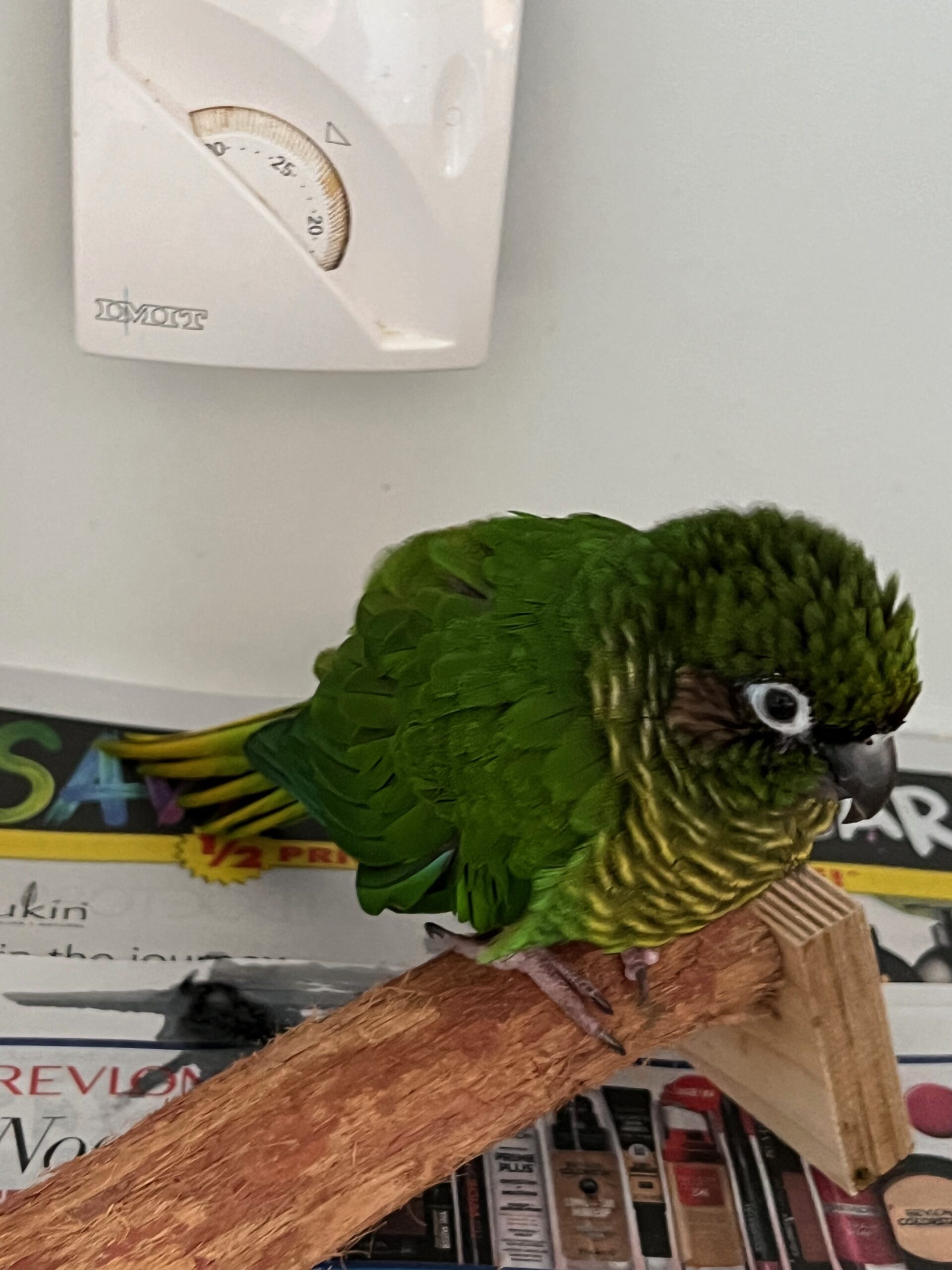
My problem with writing this post is that there are multiple owners out there that are going to believe this post is about them, their bird or their personal situation. I want you to think about that for a second. It's a problem that this post fits MULTIPLE people. This is happening over and over and over again. I'm going to keep the details general to protect the family that finally drove me to snap enough to write this, but the reality is - this post IS about more than one person, family and bird.
The latest situation was pretty standard. It was a very late night call. The bird was in a life threatening condition, highly likely to die at any second. No avian vets were open at that time of night. The 24hr vets have a bad habit of refusing to see birds and were doing that again. The owner was absolutely desperate for help and advice and the bird was almost certainly going to die if I didn't give it. So I did. I was able to give advice that completely and somewhat miraculously stopped the bird's symptoms and (at least temporarily) stabilised it.
I made it clear that there was a reason the bird had had the symptoms and that it needed a vet. I made it clear that the expired medications that the owner fortunately had on hand, were not going to work as more than a temporary, it's going to die anyway if we don't use them... fix. The bird needed a vet and we had fortunately bought it enough time to get one. I hung up saying come to the clinic first thing in the morning.
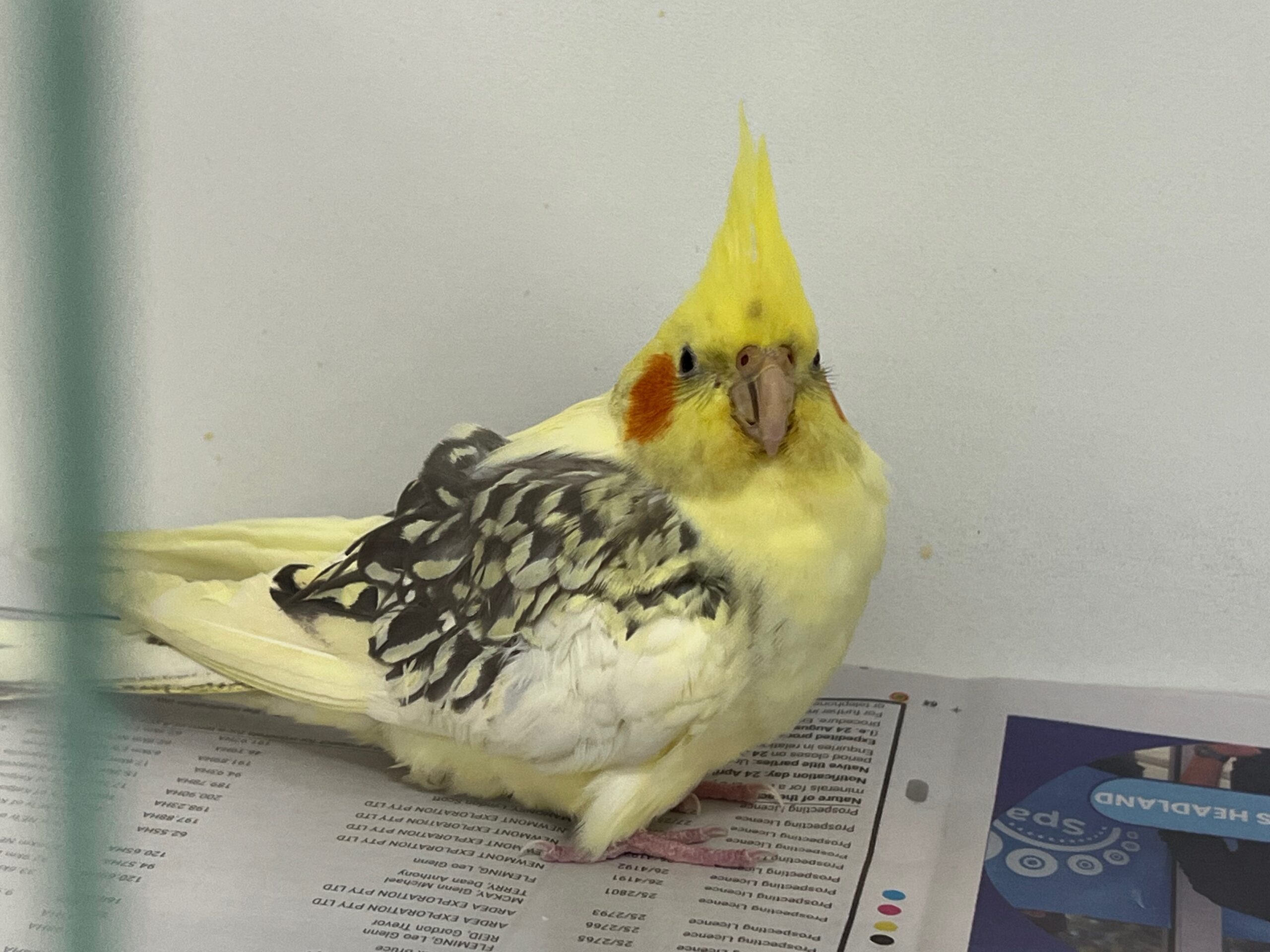
Except the owner didn't show up at the clinic in the morning. I don't know the owner's situation. Maybe there were tight for money? Maybe they were busy and had something important on? To be honest, I didn't really care, my focus was the bird's needs and they were serious. Whatever the owner's situation, the owner was now in denial about the seriousness of the situation, clinging desperately to their bird's apparent improvement. They now felt secure enough to wait until their favourite vet was available; when it was convenient for them to come in. They were desperately trying to convince me that their bird was ok because it was eating and moving around. They were trying very hard to get me to say it was ok to wait, wanting me to alleviate their conscience. I couldn't do that. To be fair, I NEVER do that. There are enough owners out there that have tried to convince me everything was now fine and I have never ever ever been able to say "Sure. You're probably right." I have seen too many die to be able to agree.
I tried to get them to come in, pointing out that if it was bad enough to bug me out of hours, then they had clearly thought it was serious enough to need veterinary assistance THEN. I explained the bird was likely to deteriorate again, maybe even die. The owner kept desperately trying to get me to agree it was ok to wait. I said that wasn't going to happen and if it was my bird, it would have been at the vet hours ago, but it's not my bird it's THEIRS and their call. The thing is, I can't force someone to come to the clinic, I am not supposed to call someone an idiot (even if I'm thinking it), all I can say is if it were mine, I would be acting differently.
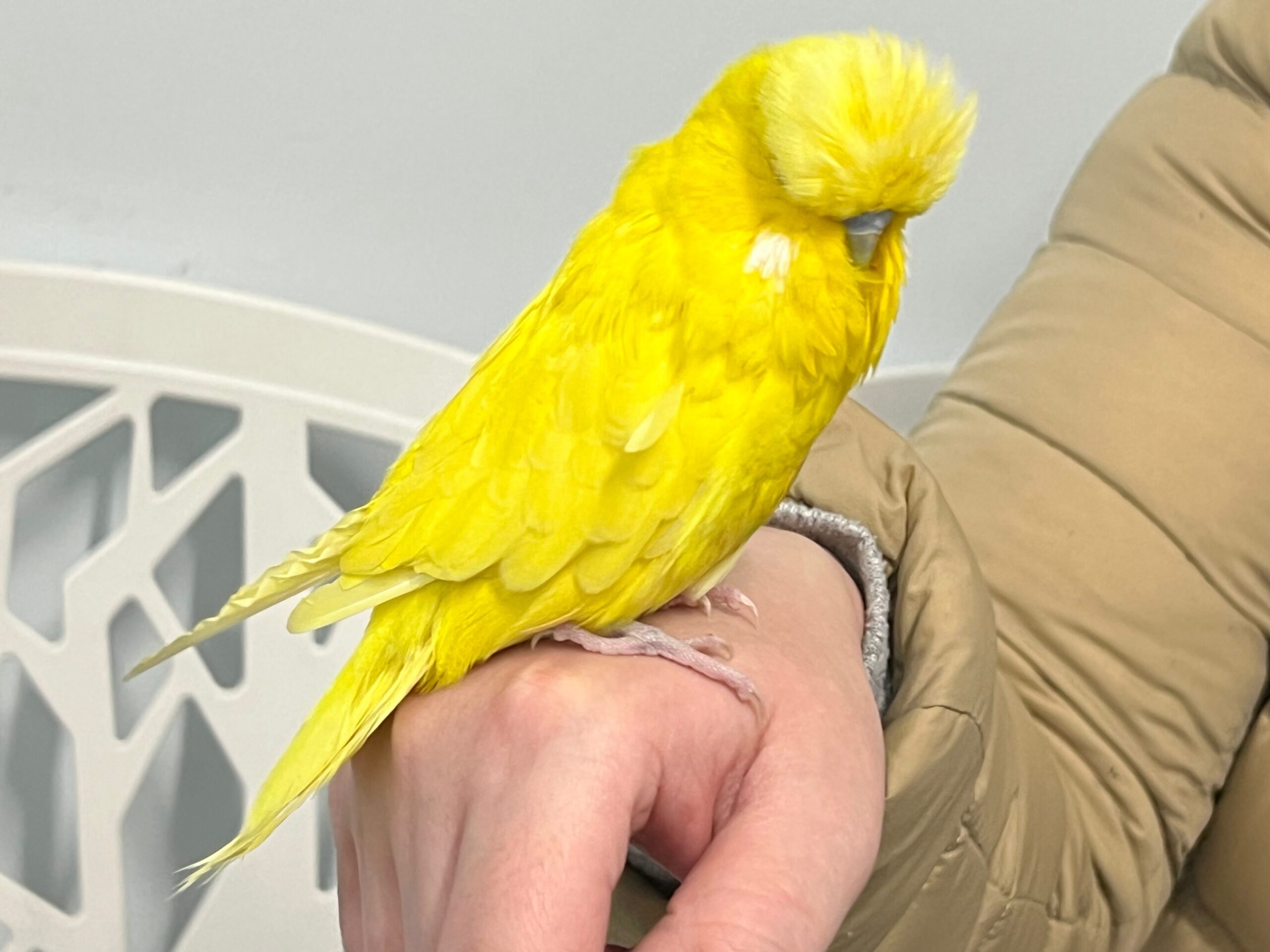
In one last ditch effort to get them to come in, I asked that one question that I want owners to really think about:
How will you feel? Will you be ok with your decision to wait if the bird deteriorates or even dies before it sees a vet? Can you live with the regret that YOU didn't do everything you could when you had the chance?
Well that's manipulative, isn't it? But I said it for a reason. I don't want someone to live with that level of regret and I could see it coming. I know that if a bird shows any symptoms of being sick - it's already advanced and serious. Birds are food on the food-chain. They are genetically programmed to hide illness until they can't anymore. If you bird is showing symptoms of illness, let alone life threatening ones - there is a limited window to get treatment. Medications need time to kick in and work and you don't want to use up that window procrastinating on getting treatment. I don't want someone's bird to die because they're mistaking "currently stable" for: "the bird is ok enough to wait now". Stabilising a bird helps them feel strong enough to hide their illness again, it does NOT mean they are out of danger. It may have stopped bleeding - but blood loss requires treatment. Symptoms may have stopped but they happened for a reason.
As I said, I'm writing this blogpost because yet another bird has died. Yet another owner has mistaken their bird acting stronger as a sign that they could delay treatment and get it at their leisure. Only now, not only is their bird dead, they have my words replaying in their head, which adds a whole new level of guilt to the scenario. They're going to blame themselves for not getting help when they had the chance. They're going to replay my asking if they're ok with that, in their head over and over. They're not alone in that blame either. I find myself wondering if there is anything else I could have said to get them to seek treatment. Was I not forceful enough? I knew the bird needed vet treatment. I've seen enough birds die. I know better. Surely there is something, anything more that I could have said? Or maybe I shouldn't have given them the advice that stabilised their bird. Maybe I should have left their bird unstable with a higher risk of dying sooner, so they still felt the need to urgently get professional help?
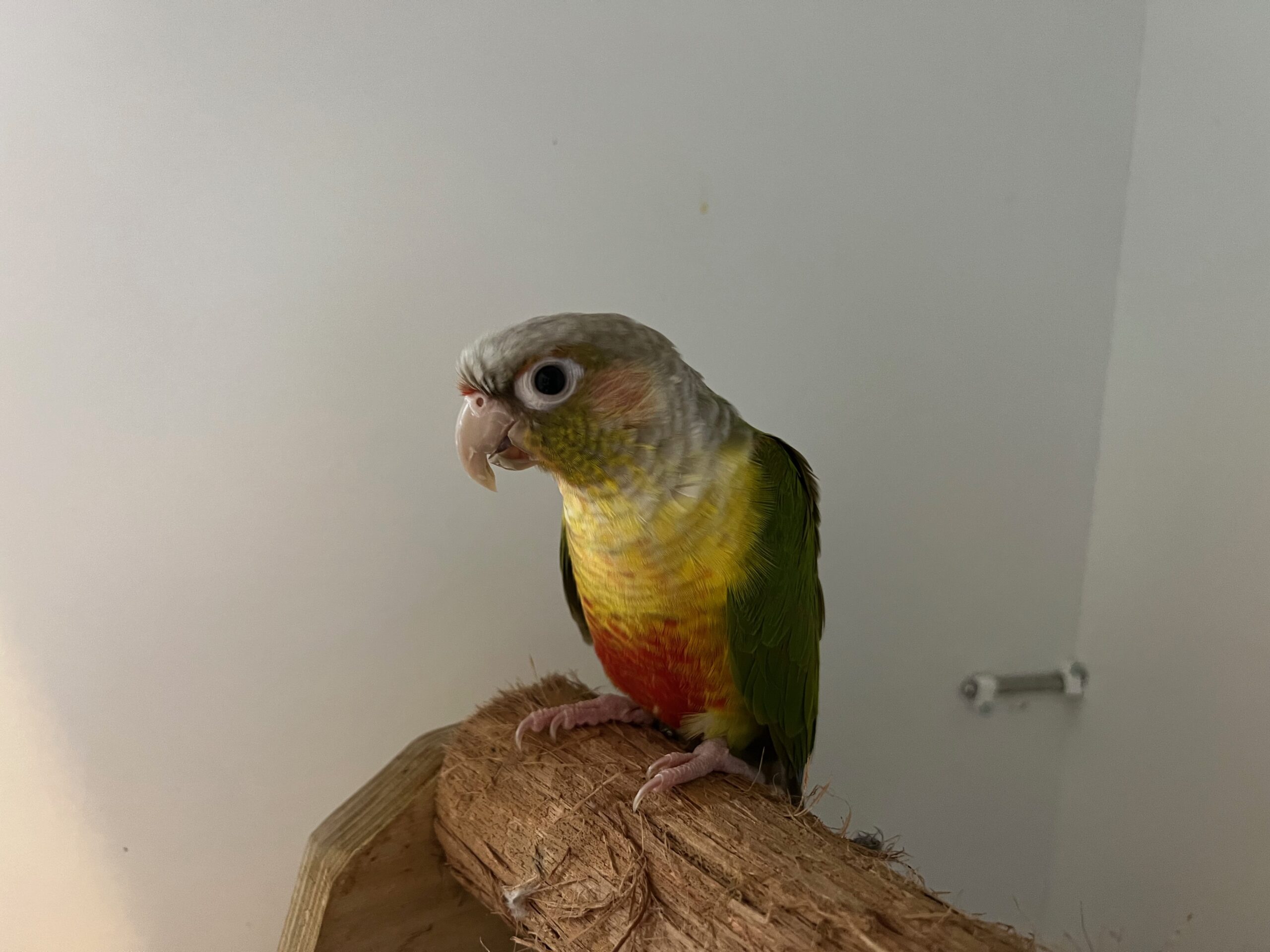
The owner has to live with their regret and I know they're not coping. I have to live with mine. The difference is, for the owner it's just the regret for their own single bird. For me? At this point, I have relived this scenario so often that I can't tell you how many bird deaths I'm living with. It takes a toll and I'm not alone. Each and every one makes me question if I should be helping someone when they ask? And if you are one of the people that chooses to not come to the clinic after getting after hours advice YOU are part of the problem and adding to that mental pressure. This is something that people who work in the vet industry at all levels deal with DAILY. There is a reason the vet industry has a suicide rate four times higher than any other industry. It's because of the accumulative effect of situations exactly like this.
So I'm writing this article and any time someone contacts me out of hours with an emergency, I'm sending them this link. I hope it makes a difference.
If you're reading this and you've sought help from someone in the veterinary industry after hours... Have the respect for that person to follow through and get treatment. Don't just expect free advice to save your animal. Understand there's a cost to the person you're asking help from. Don't mistake stable for fixed. If you're lucky enough to get the miracle of getting more time with your bird, more time to seek treatment - make the most of it. If it's bad enough for you to require help out of hours, it's bad enough for you to need to take responsibility and follow through when help is actually available. Don't risk living with regret and don't underestimate the toll you are taking on that veterinary professional's mental health.
